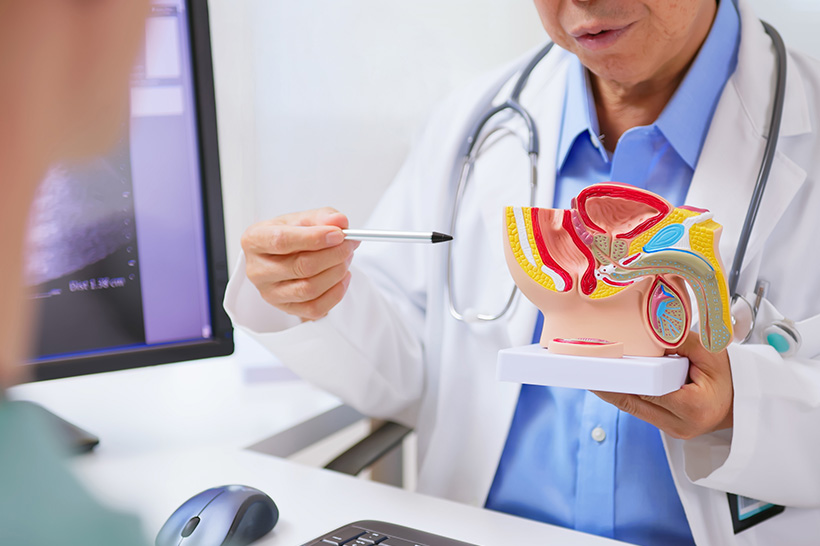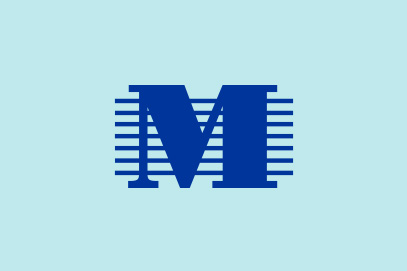
Urinary Disorders
We provide expert diagnoses and personalized treatments for a wide range of urinary disorders.
When a urinary disorder interferes with your life, our urology specialists are here for you. You’ll find advanced care and support for your urinary health, so you can get back to what matters most.
To learn more about our services or schedule an appointment
305-682-2580Types of Urinary Disorders
Urinary disorders can cause symptoms, such as bladder leakage, difficulty urinating and pain, that affect your quality of life. They can also be awkward to talk about. At Memorial Healthcare System, our providers understand your concerns and help you find relief from urinary conditions, such as:
Hematuria can be a sign of many conditions, including kidney stones, UTIs, injuries and BPH. Your urine may turn pink, red or brown. A urine test can detect small amounts of blood in your urine, even if your urine looks normal.
IC/BPS is caused by inflammation of the bladder lining. The main symptom is frequent and often severe pain. IC isn’t well-understood, and diagnosis and treatment can be challenging.
Urination requires coordination between the nervous and urinary systems. Neurogenic bladder occurs when a neurological condition, such as multiple sclerosis, stroke or a spinal cord injury, disrupts this coordination.
Symptoms of neurogenic bladder vary widely. For example, bladder function can be overactive or underactive, depending on the affected nerves.
Overactive bladder is a chronic condition that causes frequent urination and urine leakage. Medical experts estimate that one in six people have an overactive bladder, although it may be higher since many people don’t seek care.
Urinary incontinence is the inability to hold in urine due to a loss of bladder control. It’s more common in older adults but can also occur after childbirth or prostate surgery. Other causes include UTIs, diabetes, multiple sclerosis and pelvic floor disorders.
The main types of urinary incontinence are:
- Stress incontinence: Leakage during certain activities, such as when you sneeze, laugh, or run.
- Urge incontinence: An intense urge to urinate, causing leakage before you make it to the bathroom.
- Overflow incontinence: Leakage that develops over time if your bladder doesn’t empty fully.
- Mixed incontinence: A combination of types, usually stress and urge incontinence.
Urinary retention is when you have difficulty urinating or fully emptying your bladder. A common cause is urethral stricture (narrowing) due to benign prostatic hyperplasia (BPH) (enlarged prostate). Other causes include obstructions, infections, neurological conditions, bladder muscle dysfunction, and certain medications.
UTIs are bacterial infections that can affect any part of the urinary tract but occur most often in the bladder (cystitis). They cause inflammation and urinary symptoms, such as frequent and painful urination.
UTIs can return frequently, requiring ongoing care. Severe UTIs can lead to life-threatening complications if not treated.
Diagnosing Urinary Disorders
The first step in diagnosing urinary disorders is to review your symptoms and medical history and perform a physical exam. As a new patient, we take extra time to discuss your condition and put you at ease.
Your evaluation may also include one or more tests:
Cystoscopy is an in-office test that involves inserting a thin tube into your urethra. A camera at the end of the tube lets your provider look for abnormal areas inside your urethra and bladder. Cystoscopy can also be used to treat urinary conditions.
Urine tests help us look for signs of infection and other changes in your urine. Your provider may also order blood tests to check your kidney function and overall health.
Urodynamic tests measure how well you store and release urine. They help your provider assess bladder and urethral function and determine the cause of any leakage or blockages.
Urodynamic testing includes a series of studies your provider may perform together or separately:
- Uroflowmetry: Measures how much urine comes out and how fast
- Post void residual measurement: Determines the amount of urine left in your bladder after you urinate and whether it empties fully
- Cystometry: Measures pressure inside your bladder as it fills with urine and bladder volume when you feel the urge to urinate
- Pressure flow study: Measures bladder pressure while you urinate
- Electromyography: Measures the electrical activity of nerves and muscles in the pelvic area
Treatments for Urinary Disorders
Treatments for urinary disorders vary depending on the condition type. We offer a comprehensive array of options, partnering with other Memorial specialists as needed. Our approach is to tailor treatment to your unique needs.
Your care may include:
Bulking agents are substances we inject into the urethra to treat urinary incontinence. They increase resistance inside the urethra, which helps slow urine flow.
Depending on your condition, your provider may recommend changing your diet or the amount of fluids you drink. For IC/BPS, stress management and cognitive behavioral therapy can be effective. Timed voiding is a type of behavior change for urinary incontinence that helps you develop a more regular urination schedule.
Our specialists use medications for urinary disorders to:
- Block nerve signals that stimulate urination
- Change the pH of the urine
- Reduce urine production
- Relax bladder muscles
- Relieve pain
- Treat or prevent bacterial infections
In some cases, we may place medication directly into the bladder. An example of this therapy is Botulinum toxin (Botox®) injection for urge incontinence and overactive bladder. We use cystoscopy to inject Botox into the bladder wall.
Sacral neuromodulation is a treatment for many urinary conditions. It uses a surgically implanted device similar to a pacemaker.
The device consists of a small battery-powered controller and thin wires connecting to the bladder’s nerves. The controller delivers electrical pulses to regulate bladder function. After surgery, we connect you with a company representative who works with you to optimize the settings.
This treatment is an option for people with urinary retention. You insert a thin tube into your urethra and bladder several times a day to drain urine. Our care team provides detailed instructions and support as you learn this technique.
Tibial nerve stimulation is a treatment for overactive bladder. The nerves in your lower leg and bladder share the same nerve root. Stimulating the tibial nerve also activates the nerves around the bladder, decreasing the urge to urinate.
The treatment involves placing a thin needle through the skin of your ankle to the tibial nerve. A small device delivers electrical pulses to the nerve. Each treatment session is 30 minutes. You receive treatments once a week for 12 weeks and monthly thereafter.
Surgery may be an option for urinary incontinence or retention if other treatments aren’t effective. Our urologists are skilled surgeons and offer many advanced options, such as:
- Artificial urinary sphincter: This treatment for men with urinary incontinence involves surgically placing a small cuff around the urethra. A small controller placed inside the scrotum allows you to open and close the cuff to release and hold urine. Learn more about artificial urinary sphincter.
- BPH surgery: There are many surgical treatments for BPH to relieve urinary retention. Our surgeons offer a full range of options, including advanced minimally invasive procedures.
- Sling for male urinary incontinence: In this procedure, the surgeon places a synthetic mesh strip underneath the urethra to provide support and slow urine flow.
Urinary Disorders: Why Choose Memorial Healthcare System?
Memorial Healthcare System is home to a leading urology program featuring:
-
Skilled, compassionate team
You receive care from highly trained professionals who take the time to answer your questions and ease your concerns.
-
Advanced diagnostics
We offer state-of-the-art urodynamic testing to precisely diagnose urinary disorders.
-
Patient-centered approach
Our urologists listen to you and work with you to determine the right care for your condition.



